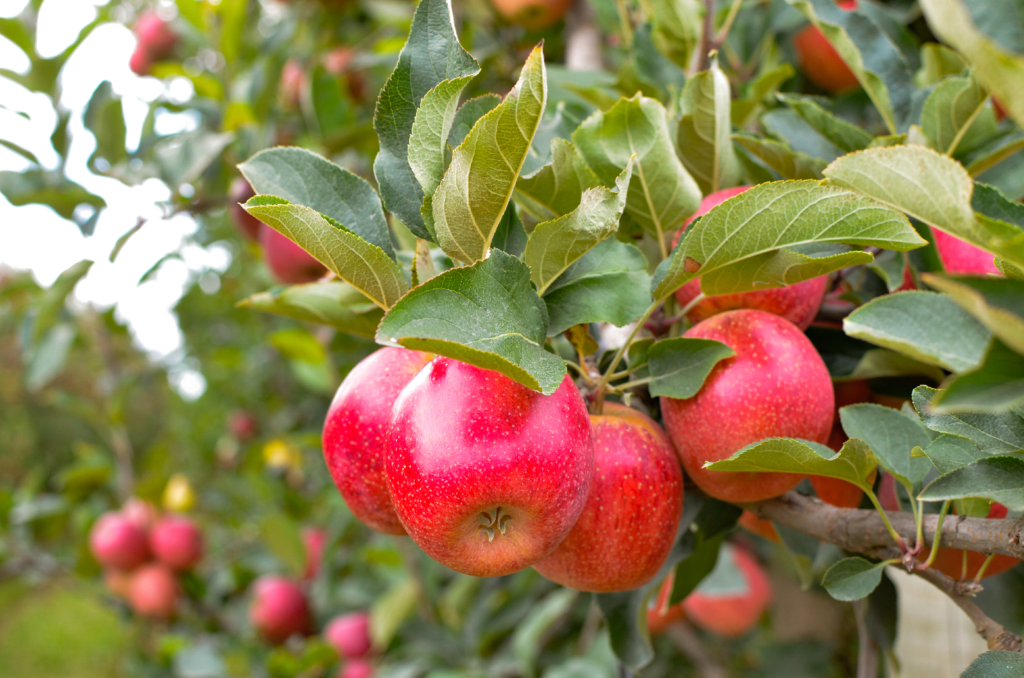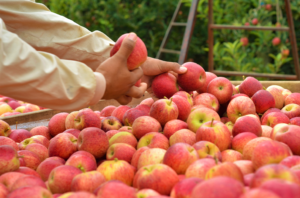São Paulo – Brazil has sought to widen the international reach of its products, and apple juice is one of them. The Ministry of Agriculture, Livestock and Food Supply (MAPA, in the Portuguese acronym) has been in talks for four years to break into the United Arab Emirates market. Around two weeks ago, the UAE submitted a document to MAPA containing the country’s requirements and regulations for apple juice. The market opening process is being negotiated without a forecast to be completed.
ANBA talked with Clóvis Serafini, MAPA’s general coordinator of Technical, Sanitary, and Phytosanitary Issues. He said that the secretariat has been in talks about thousands of agribusiness products such as this. The analysis involves both phytosanitary issues like potential plagues and requirements that cover the product and its traits. According to Serafini, in talks with the UAE on apple juice, the response was delayed, and the negotiation became longer.
Some negotiations are swifter, taking only a few days, while others can take years, the coordinator said. “Countries have the autonomy to pose rules and regulations on products, and in the case of juice, if it’s not treated, it can carry plagues into the country; even in the wooden pallet used to export such products, and these rules encompass all that,” Serafini said.
As for the quality of the juice, if it’s pasteurized or not, if it’s sweeter or more acid, if it’s more or less viscous, all that depends on the UAE market, what the consumer there prefers, the MAPA’s representative said. Therefore, the negotiations consider if the Brazilian industry can meet the requirements of the Arab country. “The Brazilian interest arose, so now we have to see the requirements for breaking into the market, and some negotiations take ten, fifteen years. We can say that we’ve been in talks, and we’re interested in selling to this potential market of the UAE,” Serafini said. More information on the requirements can be found on the website of the UAE regulator ESMA.
Market
According to the Brazilian Association of Apple Producers (ABPM, in the Portuguese acronym), two Brazilian companies export apple juice, Yakult and Fischer, the latter selling the most significant volume. ANBA interviewed Fischer executive director Arival Pioli. Fischer and ABPM are based in Fraiburgo, in the state of Santa Catarina.
Pioli said they didn’t know about the talks with the UAE, but they are interested in the market. “We are interested in the UAE market, both for juices and fresh fruit,” he said. Fischer doesn’t sell apple juice to any Arab country yet, but it exports fresh apples to Saudi Arabia, Oman, and Qatar.
The top markets of apple juice from Brazil are the United States and Europe. “But many countries consume apple juice for its healthiness and low acidity that combines with several other juices,” Pioli said. For Fischer, the US has been the top market. “Our sales to Europe are more restricted as there are taxes for exporting apple juice, and in the US, we have some logistic advantages, offering the juice in bulk. It’s a major advantage both in costs with packaging and the environmental aspect,” said the director.
According to Pioli, there are many other potential markets for the juice, including Russia, Mexico, Canada, and Japan. “But logistics issues and the competition with closer producers discourage our participation,” he said.
Which apple turns into juice?
The apple is a perennial crop with a yearly yield, and has high costs due to its delicate handling, said Pioli. Hence, all Fischer’s orchards are managed to produce for the fresh fruit market, where there is greater added value.
But then which apple turns into juice? “Productivity and quality fluctuate greatly influenced by weather conditions such as cold, rain, hail, etc. Only apples not suitable for fresh consumption are destined for factory production. Hail is the main issue driving fruit to the industry. Therefore, the volume of raw material for factory production also undergoes large variations from one harvest to the next,” explained Pioli.
The apple juice produced at Fischer has an average acidity of 1.2% to 1.8%, which is considered low. “There is a critical differential to highlight that we use 80% raw material from our production, and 20% from selected producers and partners that follow the integrated production, with the required qualifications. In other words, compared to other world producers, our product has differentiated traceability. The raw material has assured quality in terms of food safety,” highlighted Pioli.
There are three types of apple juice produced by Fischer, apple juice concentrate (AJC); whole juice, or not from concentrated (NFC), and apple essence, extracted in the process.
Fischer production and export
Fischer’s factory specializes in the production of apple juice and is Brazil’s leading. According to the availability of raw material produced each year, the company’s apple juice production varies annually from 10,000 to 21,000 tonnes of concentrated juice. “Currently, 18% is destined for the domestic market, and 82% is for exports. In the domestic market, demand for whole juice has grown,” he said.
Fischer’s exports over the past 11 years have fluctuated between 11,000 and 26,000 tonnes per year, averaging 16,000 tonnes. “The international price depends on the global supply of juice, the biggest producer being China, followed by Europe. They are the ones who determine the annual prices,” said Pioli.
The director said there is a worldwide trend in increasing demand for whole apple juice (NFC), and the company is studying the feasibility of implementing specific orchards for it. “Only if we make this plan feasible will we be able to project growth in production and export volumes,” he said.
General data
According to the ABPM, the total yearly production of apples in Brazil is 1.2 million tonnes – an average of recent years. On the other hand, Apple juice has an annual output of 34,000 tonnes on average, with a large part bound to the foreign market. Between 19,000 to 20,000 tonnes on average are shipped abroad, mainly to the US and Europe, while the domestic market receives 14,000 to 15,000 tonnes of juice.
The juice is mainly exported in bulk (about 12,000 tons), and 7,000 tons are shipped in 200-liter steel drums. Brazil produces concentrated, clarified (AJC) and whole apple juice. To export apple juice, certification of origin is required.
Translated by Guilherme Miranda & Elúsio Brasileiro





